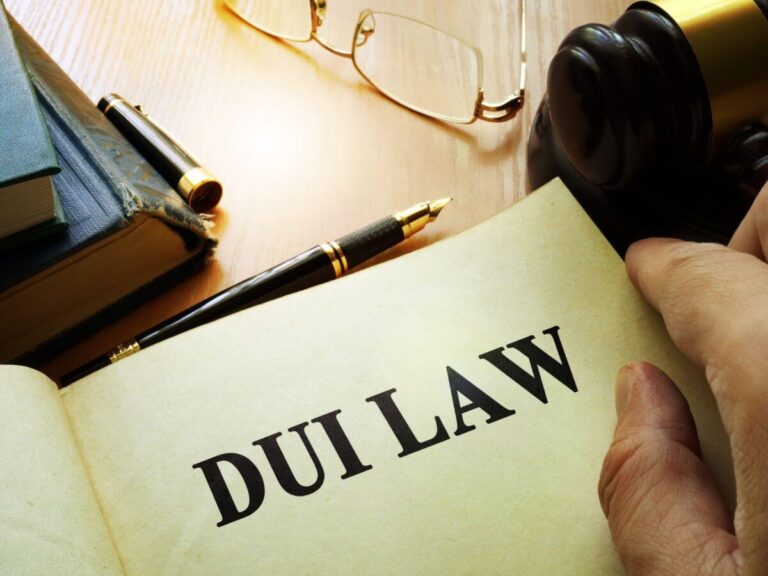How to Guide for the DHSMV DUI Formal Review Hearing in Florida

How to Guide for the DHSMV DUI Formal Review Hearing in Florida
If you’ve been arrested for DUI (Driving Under the Influence) in Florida, the consequences can be severe. Besides facing criminal charges, your driving privileges are immediately at risk. However, Florida law provides an opportunity to challenge the suspension of your license through a Formal Review Hearing with the Department of Highway Safety and Motor Vehicles (DHSMV). This guide will walk you through the steps to prepare for and navigate this critical hearing.
What is a DHSMV DUI Formal Review Hearing?
When you are arrested for DUI in Florida, your license is usually suspended automatically. You have the right to contest this suspension by requesting a Formal Review Hearing. This hearing is an administrative process where you can challenge the evidence against you and possibly get your driving privileges reinstated.
Why is the Hearing Important?
A successful outcome at the Formal Review Hearing can result in the reinstatement of your driving privileges, which can be crucial for maintaining your job, education, and other daily activities. Even if you plan to fight the DUI charge in criminal court, the administrative hearing is an opportunity to limit the immediate impact on your life.
Step 1: Request the Hearing
After a DUI arrest, you have 10 days to request a Formal Review Hearing. It’s crucial to act quickly. During this 10-day period, you’ll typically receive a temporary permit that allows you to drive for 10 days following your arrest.
How to Request the Hearing
- Visit the DHSMV Office: You can request the hearing in person at a DHSMV office.
- Mail the Request: You can also mail a written request for the hearing. Ensure it is postmarked within the 10-day window.
- Hire an Attorney: An experienced DUI attorney can handle the request process for you, ensuring all necessary paperwork is submitted correctly and on time.
Step 2: Gather Evidence
Once your hearing is scheduled, it’s time to gather all relevant evidence. This evidence will be crucial in challenging the suspension.
Types of Evidence to Collect
- Police Reports: Obtain the arresting officer’s report and any other documentation related to your arrest.
- Breathalyzer Test Results: If you submitted to a breathalyzer test, the results and the machine’s maintenance records might be pivotal in your defense.
- Witness Statements: If there were any witnesses to your arrest, their statements might help support your case.
- Field Sobriety Test Records: If you performed field sobriety tests, the results and how they were administered should be reviewed.
Step 3: Prepare Your Defense
To win your Formal Review Hearing, you’ll need to present a strong defense against the evidence that led to your license suspension.
Common Defenses Include:
- Improper Traffic Stop: Arguing that the officer lacked probable cause to stop your vehicle.
- Incorrect Administration of Tests: Demonstrating that the breathalyzer or field sobriety tests were not conducted according to proper protocols.
- Questioning the Evidence: Challenging the accuracy of the evidence, such as breathalyzer calibration or the officer’s observations.
Step 4: Attend the Hearing
The Formal Review Hearing will take place at a DHSMV office. It is typically conducted by a hearing officer, and you or your attorney will have the opportunity to present your case.
What to Expect at the Hearing
- Testimony: The arresting officer may testify about the events leading up to your arrest. You or your attorney can cross-examine the officer.
- Presentation of Evidence: You’ll present your evidence, including any documents, witness statements, or expert testimony.
- The Hearing Officer’s Role: The hearing officer will evaluate the evidence and make a determination on whether your license suspension should be upheld or dismissed.
Step 5: The Outcome
After the hearing, the hearing officer will issue a decision. If the decision is in your favor, your driving privileges will be reinstated. If not, you may have the option to appeal the decision or apply for a hardship license.
If You Win
- Reinstatement of License: Your full driving privileges may be reinstated.
- Impact on Criminal Case: While the hearing is separate from the criminal case, a favorable outcome can be a positive indicator for your defense.
If You Lose
- License Suspension: Your license suspension will be upheld, and you’ll need to serve the suspension period.
- Hardship License: You may apply for a hardship license, allowing you to drive for essential purposes during your suspension.
Conclusion
Navigating the DHSMV DUI Formal Review Hearing process in Florida can be daunting, but with proper preparation, you can effectively challenge your license suspension. Given the complexity of the process, it’s advisable to consult with or hire an experienced DUI attorney who can guide you through the hearing and increase your chances of a favorable outcome.
Remember, time is of the essence after a DUI arrest, so take action quickly to protect your driving privileges.
Experience the difference at The Perl Law, PLLC, where I don’t just represent clients; I build lasting relationships based on trust, respect, and legal excellence.
Schedule A Free Consultation

